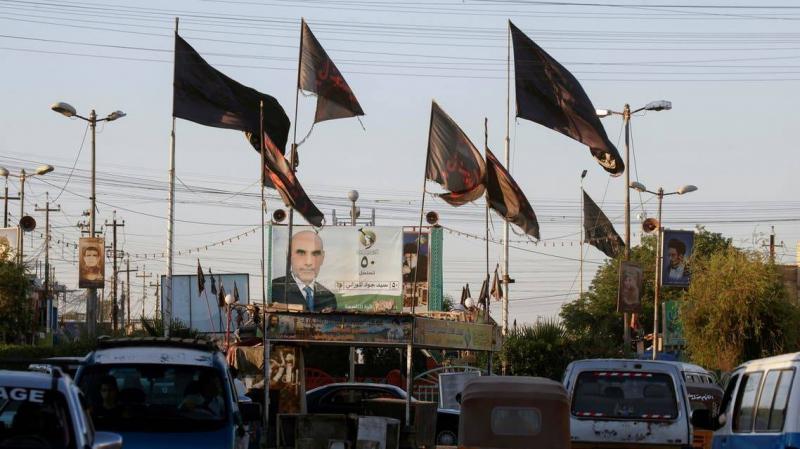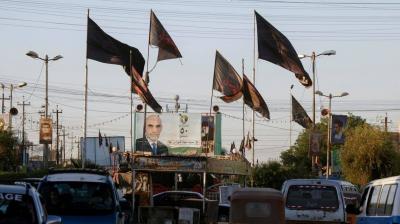Under the title "Iraq Elections: Strife Between Iranian Factions and Their Opponents," the Al-Arabiya website reported that as October begins, many Iraqis recall the protests that started around this time two years ago, eventually leading to the advancement of the election date to October 10, 2021. However, indications on the ground do not suggest that the elections will improve the situation in a country where armed factions hold significant influence.
Notably, banners placed in one of the main squares in the south of the country express the difficult political situation and the severe division, featuring large posters of activists and journalists who were killed while defending the movement they hoped would change their country. In contrast, images of members from certain armed factions who were killed in battles against ISIS are displayed.
Analysts agree that the elections set for October 10 will reveal increasing divisions, particularly among Shiite parties, according to a Reuters report.
#### Factional Struggles
Some armed factions backed by Iran are facing off against factions opposed to Iranian influence in the upcoming elections. Additionally, some activists who protested in 2019 are against these factions, which they describe as loyalist, while others are boycotting the elections altogether. Ordinary citizens, foreign diplomats, and analysts told Reuters that the central theme of this electoral event is the strife between armed factions willing to use force to maintain power.
#### "Sharing the Spoils"
What the elections produce will determine the direction for the coming years, whether the factions will raise arms against each other or if they will peacefully divide the spoils among themselves. In this context, Toby Dodge, a professor at the London School of Economics, stated that "the elections are crucial for competition among what he described as the elite, and for understanding how this class will address imbalances without suffering major losses." He also noted that the divisions among the Shiite parties benefit Iran as long as they do not threaten their power.
The primary competition remains between the Iranian-backed factions and the faction led by Muqtada al-Sadr, which opposes all forms of foreign intervention.
#### Concerns Over Violence
In this context, a Sadr supporter in Baghdad, who requested anonymity, expressed fears of violence if his party achieves a sweeping victory in the elections, stating, "The Iranian-backed side will not allow that. Fighting will break out."
It is worth noting that the Iraqi elections are being held six months ahead of schedule under a new law aimed at assisting independent candidates. A total of 167 parties are participating in the elections, according to the Independent High Electoral Commission.




